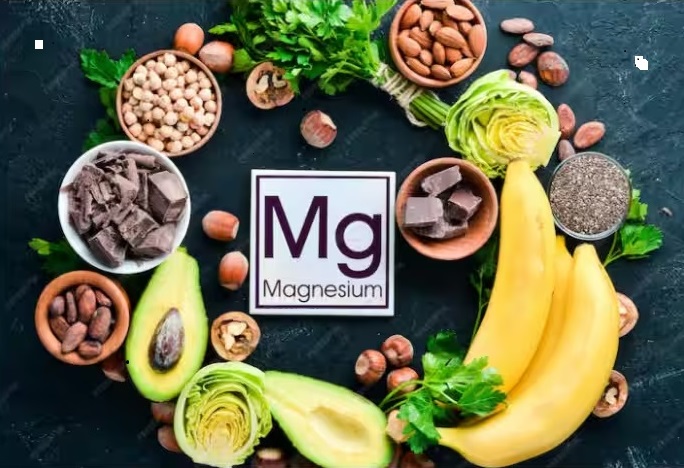While magnesium has recently captured attention for its potential sleep-enhancing properties, this vital mineral has been quietly powering hundreds of crucial bodily functions all along. Although supplement sales are soaring, nutrition experts emphasize that the best way to harness magnesium’s benefits is through wholesome, natural food sources.
“Magnesium is truly a cornerstone of human health,” explains nutrition and wellness expert Samantha Cassetty, MS, RD, founder of Sam’s Plate and co-author of Sugar Shock. “This powerhouse mineral orchestrates over 300 biochemical reactions in your body. Beyond supporting heart health, blood pressure regulation, and blood sugar balance, it’s essential for maintaining strong bones and cellular energy production. What’s particularly fascinating is its dual role in stress management – magnesium helps regulate cortisol levels while supporting natural melatonin production, potentially improving both stress resilience and sleep quality.”

According to the National Institutes of Health’s guidelines, women should aim for 310-320 milligrams of magnesium daily, while men need 400-420 milligrams. The good news? Meeting these requirements through diet alone is surprisingly simple.
Let’s explore nature’s richest sources of magnesium, from crunchy almonds and nutrient-packed pumpkin seeds to dark chocolate – proving that good nutrition can be both healthy and delicious.
1. Leafy Green Vegetables
- Spinach: 1 cup (cooked) provides about 157 mg of magnesium (39% DV).
- Swiss Chard: 1 cup (cooked) provides around 150 mg of magnesium (36% DV).
- Leafy greens are also packed with other essential nutrients like iron, calcium, and vitamins A, C, and K, making them an excellent base for salads or as a side dish.
2. Nuts and Seeds
- Pumpkin Seeds: 1 ounce provides about 150 mg of magnesium (36% DV).
- Almonds: 1 ounce (about 23 almonds) has around 80 mg of magnesium (20% DV).
- Cashews: 1 ounce (about 18 cashews) provides 74 mg of magnesium (19% DV).
- Nuts and seeds are not only high in magnesium but also provide healthy fats, protein, and fiber. They’re perfect as snacks or sprinkled on salads and oatmeal.
3. Legumes
- Black Beans: 1 cup (cooked) provides around 120 mg of magnesium (30% DV).
- Edamame: 1 cup (cooked) contains about 99 mg of magnesium (25% DV).
- Lentils: 1 cup (cooked) has about 71 mg of magnesium (18% DV).
- Legumes like beans, lentils, and peas are also high in protein and fiber, making them an excellent choice for plant-based meals.
4. Whole Grains
- Quinoa: 1 cup (cooked) provides around 118 mg of magnesium (30% DV).
- Brown Rice: 1 cup (cooked) has about 86 mg of magnesium (22% DV).
- Oats: 1 cup (cooked) contains 61 mg of magnesium (15% DV).
- Whole grains are nutrient-dense, providing complex carbs, fiber, B vitamins, and iron. They’re great as a base for grain bowls, breakfast cereals, or side dishes.
5. Avocado
- 1 medium avocado provides about 58 mg of magnesium (15% DV).
- Avocados are also rich in healthy monounsaturated fats, fiber, and potassium, making them beneficial for heart health and satiety
6. Dark Chocolate
- 1 ounce (70-85% cacao) provides around 64 mg of magnesium (16% DV).
- Dark chocolate also contains antioxidants, iron, copper, and manganese. Just be mindful of portion sizes due to its calorie density.
7. Fatty Fish
- Salmon: 3 ounces provides about 26 mg of magnesium (6% DV).
- Mackerel: 3 ounces contains around 82 mg of magnesium (20% DV).
- Fatty fish like salmon, mackerel, and halibut are also high in omega-3 fatty acids, which support brain and heart health.
8. Bananas
- 1 medium banana provides about 32 mg of magnesium (8% DV).
- Bananas are also high in potassium, which supports muscle function and heart health. They’re a convenient snack or addition to smoothies.
9. Tofu
- 1 cup provides around 53 mg of magnesium (13% DV).
- Tofu is an excellent plant-based protein source and also provides calcium and iron. It’s a versatile ingredient that can be used in stir-fries, soups, or salads.
10. Dried Fruits (Figs, Prunes, Dates)
- Figs: 1/2 cup provides around 50 mg of magnesium (12% DV).
- Prunes: 1/2 cup provides around 36 mg of magnesium (9% DV).
- Dried fruits are nutrient-dense and can be a quick energy boost, though they’re higher in sugar than fresh fruits, so enjoy them in moderation.






